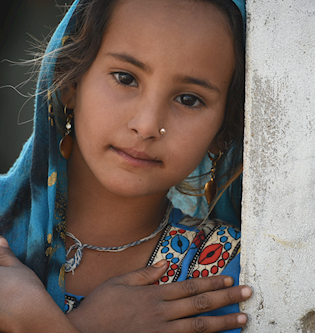Mental Health & Islam: A Path to Collective Healing
As Mental Health Awareness Month concludes, we must remember that caring for the mind is just as important as caring for the body. Beyond this month, let's continue building support for mental wellbeing in our communities – both near and far – while advocating for accessible resources for those struggling with mental health.
Muslims & Mental Health in Canada
According to the Canadian Mental Health Association (CMHA), in any given year, one in five people in Canada will experience a mental health problem or illness. For Canadian Muslims, there are unique challenges such as the lack of faith-centric support services, along with the rise in Islamophobia. Within some Muslim communities, there is a stigma around mental health, associating poor mental wellbeing as a reflection of weak faith. As a result, many Muslims may be reluctant to speak about their mental health struggles and seek help.
There is a lack of mental health professionals who understand the cultural, gendered, and religious nuances that shape the Muslim experience. Consequently, many Muslims are left without adequate support that acknowledges both their identity and lived realities. Another obstacle that many Canadian Muslims encounter is discrimination. For example, in November 2023, Naseeha Mental Health reported a 600% surge in helpline calls from Canadian Muslim women experiencing marginalization in schools and workplaces, largely triggered by the ongoing conflict in Palestine. These challenges highlight the urgent need for culturally competent, faith-sensitive mental health support for Canadian Muslims.
Mental Health Resources for Canadian Muslims
Ruh Care: This is a mindfulness app that combines psychology with Islamic values and connects users to Muslim therapists.
Institute for Muslim Mental Health Canada (IMMH): The IMMH is a non-profit organization that promotes culturally sensitive mental health support, education, and research within the Canadian Muslim community.
Nisa Helpline: This free and anonymous helpline offers mental health and counseling for Muslim women across the continent. They provide services in multiple languages.
Mental Health in Developing Countries
Globally, mental health is an escalating crisis. The World Health Organization (WHO) reported that in 2019, mental disorders affected 970 million people with anxiety and depression being the most common. These issues are even more prevalent in developing countries due to widespread poverty, limited resources, and fragile healthcare systems.
A study titled ‘Poverty, Depression, and Anxiety: Causal Evidence and Mechanisms’ by Matt Ridley et al. reveals that mental health conditions are significantly more prevalent among adolescents living in poverty. Without adequate facilities or support, children in these environments face long-term psychological and developmental risks. This is particularly evident in developing countries, where limited access to mental health resources exacerbates the challenges faced by children growing up without education, shelter, food, and water.
Women in underdeveloped countries tend to be more susceptible to mental health issues, often because of poverty, inadequate healthcare systems, gender-based violence, along with limited access to education and employment. According to WHO, women are nearly twice as likely as men to experience anxiety and depression. In low and middle-income countries, up to 80% of people with mental health conditions - many of whom are women - do not receive treatment. Systemic gender inequality further creates barriers to receiving mental health support. Addressing these realities requires not only mental health services, but also policy reform rooted in gender equity and social justice.
Healing with Muslim Hands Canada
At Muslim Hands Canada, we believe that mental health is integral to our humanitarian mission. Our holistic approach embeds mental health support within broader programs focused on health, education, food, and water across more than 30 countries. We serve some of the world’s most marginalized populations, including refugees, disaster survivors, orphans, and families living in conflict zones.
Our team is on the ground supporting vulnerable communities with access to healthcare, education, food, and water.
We work closely with children who are more susceptible to mental illnesses, such as orphans and children with disabilities. Children often face emotional and psychological trauma that requires specialized care and long-term support.
Our initiatives, such as Motherkind and Livelihood programs empower women who are impacted by poverty and gender-based violence.
Motherkind Projects: Newborn Care Kits, Post Natal Care, Prenatal Care, and Motherkind Appeal Fund.
Livelihood Projects: Hope Shop, Farming Tools & Seeds, Sewing Machine, and Livelihoods Fund.
These programs provide resources for women in developing countries to break free from cycles of poverty.
In emergency zones like Palestine and Yemen, where communities face ongoing conflict and displacement, the psychological toll is devastating. In the midst of turmoil, our team offers critical support to families and individuals enduring the hardships of war.
Supporting mental health with an understanding of faith-based values is crucial to assist communities both domestically and internationally. To make a lasting impact, we must continue to raise awareness and actively address barriers such as discrimination while advocating for inclusive mental health services. Beyond Mental Health Awareness Month, let's continue to create safe spaces and open dialogue, ensuring that no one suffers in silence.















